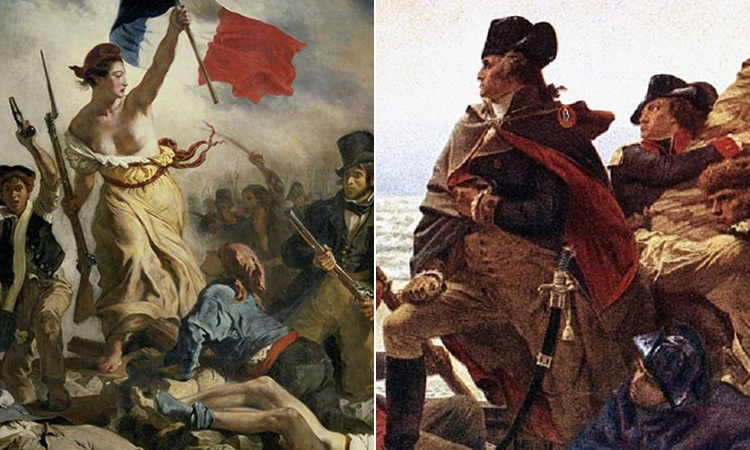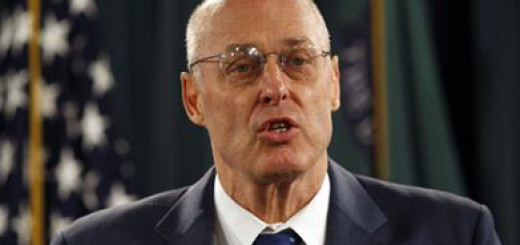The legacies of two revolutions.

Every year in July we mark the anniversaries of two revolutions. The first is on July 4 as Independence Day is celebrated in the United States. Independence Day is strongly connected to the revolt against the British monarchy by English colonists living on the North American continent. July 4 is the day in 1776 that the Declaration of Independence was first published to those colonists.
Ten days later, on July 14, the French celebrate the 1789 anniversary of the storming of the Bastille, a fortress and prison in Paris. Now celebrated as Bastille Day, the event is strongly connected to the French Revolution, a revolt by French citizens against their own monarchy.
Though the American Declaration of Independence was published in 1776 and the Bastille was stormed 13 years later in 1789, on the scale of the grand sweep of history, the events are essentially concurrent.
But there the similarity ends.
Though the unofficial slogan of the American Revolution was, “Taxation without representation is tyranny,” what really drove the American Revolution ran much deeper than the resentment of taxes. The American Revolution arose from a deeply held belief by the American colonists in the God-given sovereignty of the individual. Boiled all the way down, what the American revolutionaries were fighting for was citizen dominion over government rather than the other way around (the “other way around” having been the default state of mankind going back to the ancient Egyptians).
The French Revolution wasn’t nearly so high minded. What the French revolutionaries wanted – again, boiled all the way down – was wealth redistribution. The king and the nobility had all the money and the people – who were barely getting by – wanted it. It wasn’t complicated.
When the American Revolution was over the newly-free American citizens would go on to create the American Constitution, a document that, for the first time in human history, institutionalized individual sovereignty and, for the first time in human history, would eventually lead to poverty among the citizenry becoming the exception rather than the rule.
When the French Revolution was over, its redistributionist roots – as much as any other single factor – would give rise to socialism, which is to say government ownership of the means of production and citizens as the resulting de facto wards of the state.
The two philosophies have been in competition in the West ever since.
This fall, we will see a major contest in that competition as an avowed, unapologetic socialist seeks – with a very good chance of succeeding – the mayoralty of New York City, America’s largest city and its financial capital.
The country that emerged following the American Revolution, despite its acknowledged faults, is the most successful society in all of history. The socialism that emerged following the French Revolution has failed every time it has been tried while costing the lives of tens of millions who suffered under it.
Yet, as we see in New York, socialism refuses to die. One dare not take for granted that it won’t win out in the end.








Interesting
Every Independence Day we watch the movie 1776 which explains how the Declaration Of Independence was written, debated and eventually signed. Bastille Day is a horrific day, especially for the intelligent French subjects who were guillotined for being better than the poor. Robespierre learned the hard way that nhe was wrong all along, but his death couldn’t save France.
Great information with a perspective that this 80-year-old guy did not know! Owning the radio station allows an excellent opportunity to “teach” your listening audience. The masses need to have a better grasp of the two competing philosophies presented. The radio business can provide this much-needed kind of information; however, it must tread carefully to avoid offending its listening audience. Mr. Gieser cannot be the station owner and fill that need, for obvious reasons. There exists a great candidate to fill that slot. Consider adding an informational program that educates and informs.
Larrey
First, I feel the need to thank you for your efforts in continuing to educate the citizens of Texas. I truly enjoy your You Tell Me Texas! Having read a great deal of world history I have a hard time comparing The United States of America with the French Republic. Two completely different countries in every way.
My father voted Democratic all his life, and my mom voted Republican all her life. I tell people when I go to vote, that I am Bipolar. I still believe America is great because America is good. But if America ever stops being good, America will stop being great. The saying is real: I may disagree with what you say, but I will defend to the death your right to say it. Travel the world to see that America, with differing views, is still the best place on earth to live. After being out of the U.S. once for six months, I told my wife I would kiss the ground when we landed. I did that. I may be old fashioned, but I was thankful to be back to America.